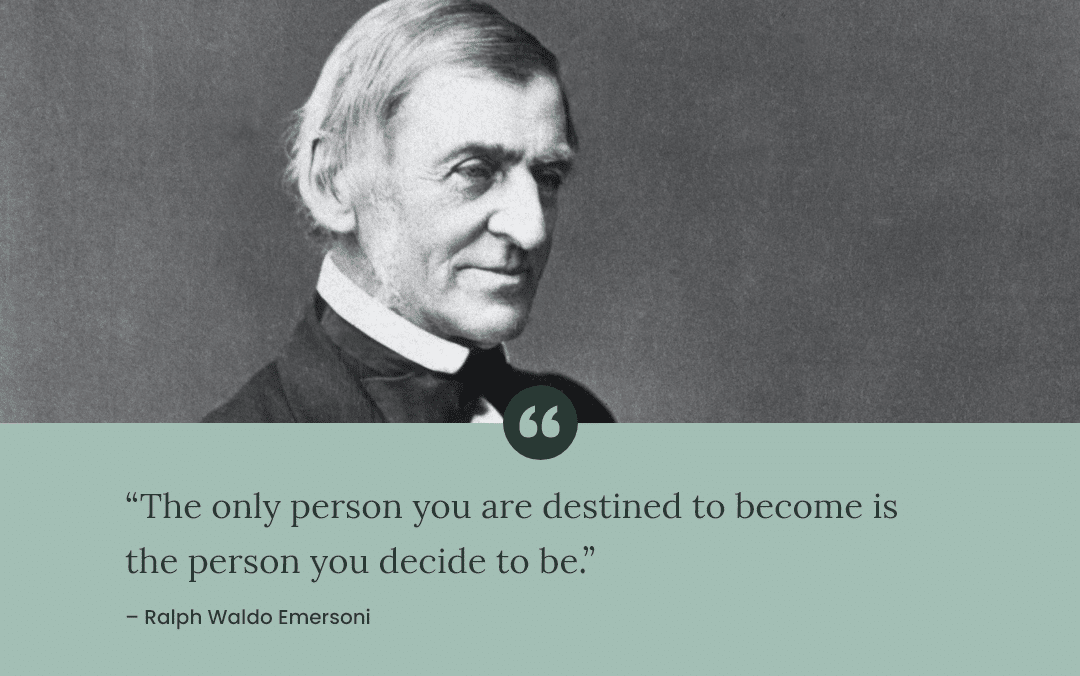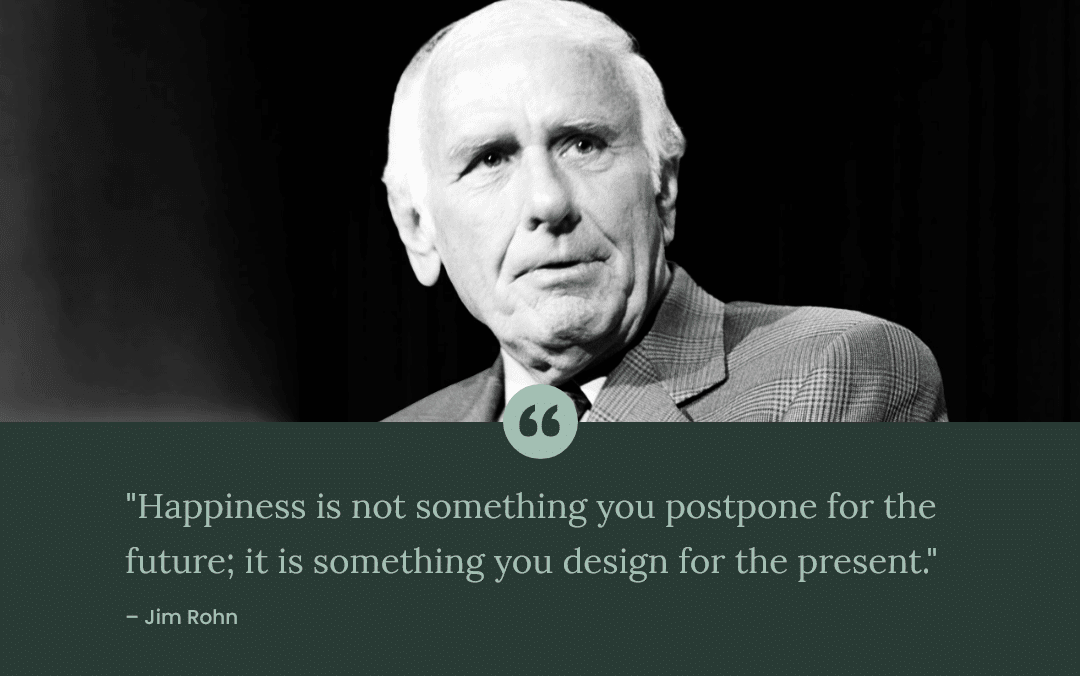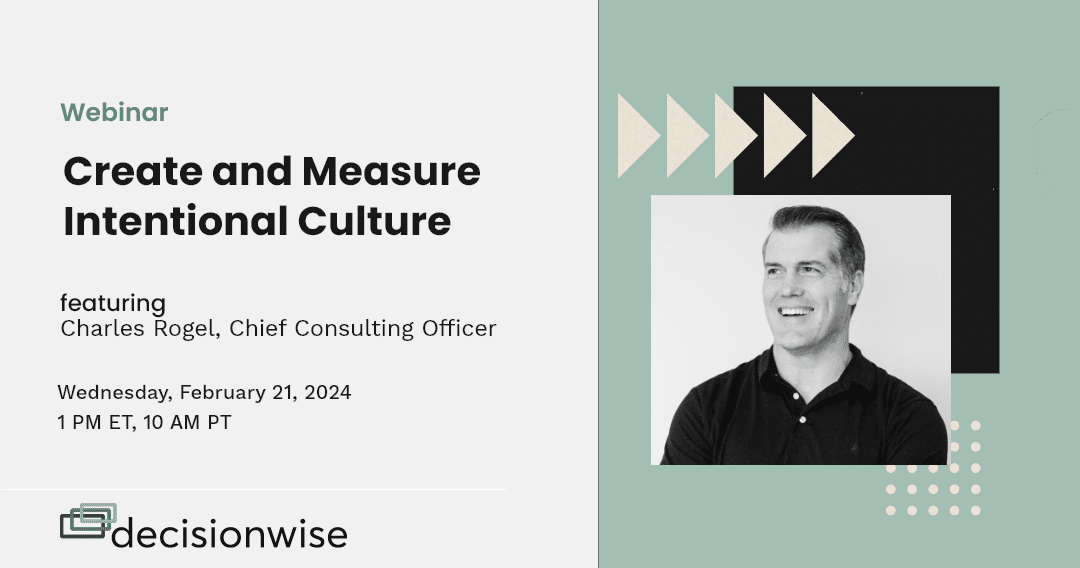What’s Happening at DecisionWise
FEBRUARY WEBINAR
Organizational culture is something we build, the employee experience is what we measure, and employee engagement is our reward. Creating an intentional culture requires measuring perceptions of the current culture and how it aligns with the desired culture. During this session, we will:
- Review the components of culture and how they relate to strategy and values
- Describe the three steps to measuring organizational culture
- Outline the action steps to take to create an organization culture that drives organizational success
What You Might Have Missed
- Steal this feedback strategy based on a study of a Fortune 500 company.
- Charles Rogel has been at DecisionWise for 20 years! Check out pictures of the celebration.
- Eight fantastic individuals obtained their 360-degree feedback coaching certification from Decisionwise. You can certify in March; check out the details here!
- Rise to the top by understanding your company’s culture.
- DecisionWise CEO, Tracy Maylett, was featured in a Forbes article.
Featured Discussion
The significance of a highly engaged workforce for any organization is undeniable. Employee engagement isn’t merely a buzzword; it translates into tangible benefits reflected in increased profitability, heightened productivity, enhanced efficiencies and elevated quality standards. The impact extends beyond the financial realm to include reduced turnover rates, improved employee satisfaction, diminished legal expenses related to personnel, improved safety and a general sense of loyalty. Astonishingly, disengaged employees are estimated to cost organizations a staggering $450 to $550 billion annually in lost productivity alone.
In the dynamic landscape of contemporary business, where productivity and efficiency reign supreme, an astute employee may rightfully inquire, “While I understand how my engagement benefits my company, what’s in it for me?” Recent research by DecisionWise, a leading employee engagement firm, delves into over one hundred thousand employee survey responses from 2023, shedding light on the personal advantages of being engaged at work:
Better health: Numerous studies, including one highlighted by authors Tom Rath and Jim Harter in their book Wellbeing, underscore the positive correlation between engagement and health. The authors cite one study monitoring 168 engaged and disengaged workers, revealing that engaged individuals experienced lower stress levels throughout the day, along with improvements in cholesterol and blood pressure readings. On the flip side, disengaged employees were twice as likely to be diagnosed with depression. Disengagement often leads to burnout which is, according to the World Health Organization, identified by energy depletion, increased mental distance from work, and reduced professional efficacy. The consequences of burnout range from impaired sleep and depressive symptoms to serious health conditions like Type 2 diabetes, diminished cognitive ability, heart disease and even increased heavy drinking.
Personal Happiness and Productivity: Employee engagement and happiness are intertwined, with engaged individuals more likely to report general overall happiness in various aspects of their lives. This positive state of mind results in a 12% boost in productivity, as noted by Harvard professor Shawn Achor. “When we are positive, our brains become more engaged, creative, motivated, energetic, resilient and productive at work.” And, it works both ways—happy employees are nearly ten times more engaged in their work than their disengaged counterparts. Fully engaged individuals experience a psychological state known as “flow,” defined by complete immersion in a challenging and enjoyable task, losing track of time and achieving a deep sense of satisfaction. This state not only fosters creativity and innovation but also contributes to overall happiness and well-being. Further, individuals who are engaged at work are more likely to remain engaged in and finish what they start outside of work as well.
Workplace Productivity, Compensation and Career Advancement: Beyond personal well-being, engagement directly translates into heightened workplace productivity, leading to increased focus and efficiency. Engaged employees work smarter and produce better results, resulting in higher wages, faster promotions and enhanced career opportunities. When you are happy in your work, your productivity increases by 31 percent and you are 40 percent more likely to receive a promotion, claims Achor. Happy employees are up to 20% more productive than unhappy employees. When it comes to salespeople, happiness has an even greater impact, raising sales by 37%. A study by economists at the University of Warwick found that happiness led to a 12% spike in productivity, while unhappy workers proved 10% less productive.
Enriched Home Life: The DecisionWise research found that engaged employees are also more likely to experience fulfillment outside of work. Individuals who find meaning and satisfaction in their professional lives report higher levels of personal satisfaction. Contrary to the misconception that workplace engagement jeopardizes work-life balance, it is a catalyst for achieving equilibrium between professional responsibilities and personal commitments. The American Psychological Association (APA) highlights that employees who are engaged at work and satisfied with their jobs tend to bring less work-related stress home, contributing to a more relaxed and positive home atmosphere. A study published in the Journal of Family Psychology and Public Library of Science by the Society for Research in Child Development found a positive association between workplace engagement, job satisfaction, autonomy and effective parenting.
Connection and Belonging: Employees who feel disconnected from their work often face negative emotions such as boredom, frustration, and apathy, leading to absenteeism and decreased job performance. Relationships play a pivotal role in fostering this sense of connection, as evidenced by the Harvard Study of Adult Development, which spanned 79 years and emphasized the profound impact of relationships on health, happiness and overall quality of life. The American Perspectives Survey names the workplace as the top source of building new friendships—ahead of school, neighborhoods, places of worship, or existing social networks. Full-time employees spend one-third of their waking hours at work. For many, work is the greatest form of social connection.
In the intricate dance between work and life, the benefits of employee engagement and job satisfaction extend far beyond the office walls. Research consistently indicates that individuals who are personally invested in their work not only experience heightened professional success but also cultivate a more successful, fulfilling, and harmonious home life. As businesses navigate the complexities of the modern world, recognizing and fostering employee engagement emerges as a strategic imperative, ensuring success both within and outside the organizational sphere. Embracing engagement isn’t just a corporate strategy; it’s a personal investment with far-reaching, positive consequences. But, while it is the organization’s responsibility to create the environment in which an employee can choose to engage, ultimately it is a choice—the employee’s choice.




